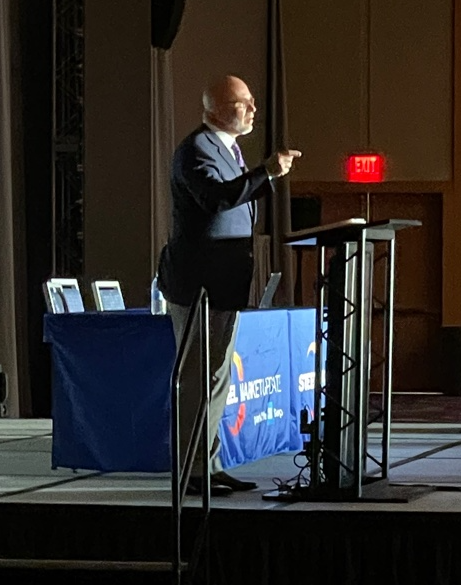Analysis

August 29, 2024
Steel Summit 2024: Smerconish suggests solution to political division
Written by Stephanie Ritenbaugh
In the 1980s, there were so many political moderates in the Senate that they had their own gathering — the Wednesday Lunch Club. It’s the type of gathering that would be unheard of in today’s sharply divided political climate.
Back then, lawmakers like Republican Nancy Kassebaum broke bread with Democrats like Arlen Specter. And both parties would crow about being the party of the Big Tent.
“That Wednesday Lunch Club couldn’t fill a high top for two today,” said Michael Smerconish, Sirius XM radio and CNN television host.
Speaking this week at Steel Summit 2024 in Atlanta, Smerconish addressed today’s polarization, as well as how we can address it.
“What’s gone wrong? A number of things, including the fact that people who do what I do for a living on radio and television, media personalities, now have outsized influence over primary voters, and they have shifted the debate to the extremes,” Smerconish told the crowd. “A polarized media is great for ratings, but bad for the country.”
He cited the late Sen. John McCain, who spoke about the increasing inability of Congress members to compromise with one another for the good of the country. At the end of his tenure, McCain urged people to “Stop listening to the bombastic loudmouths on the radio and television and the Internet. To hell with them. They don’t want anything done for the public good. Our incapacity is their livelihood.”
Another factor Smerconish noted is that people have begun to self-sort and are becoming less likely to interact with people who believe differently, have different lifestyles, or belong to another social class. Social media has made it that much easier to stay in a bubble of like-minded thinking while isolating us from our communities. Fewer people are active in their places of worship, bowling leagues, Elks clubs, or subscribe to their local newspapers, to name a few.
One way to reestablish community engagement is what Smerconish calls “The Mingle Project,” which is to engage with your neighbors and communities face to face.
Asked by an audience member how our political leaders can encourage mingling, Smerconish warned, “Don’t wait for those that I’m most critical of to solve this problem, because it suits their objective.”
“They’re not going to fix the problem. The problem gets fixed when we realize what’s driving it and to start to take small steps in our own communities to push back,” he said.







